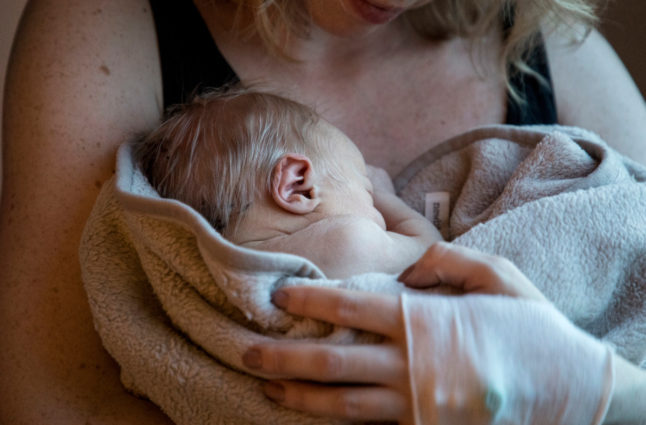Sweden’s population grew by 30,200 people to 10.5 million last year, the smallest population increase in absolute terms since 2001, official statistics showed on Thursday, as the country has sought to curb immigration.
A combination of “a decrease in the number of births, a lower number of immigrations as well as a higher number of emigrations are the reasons for the lower population increase during 2023 compared to previous years,” Statistics Sweden said.
According to the agency, 94,500 people immigrated to Sweden last year, an eight percent decrease from the previous year, while 73,400 people emigrated from the country, a 45 percent increase.
The coalition government, led by Ulf Kristersson of the Moderate Party but relying on the support of the anti-immigration Sweden Democrats, has pledged to limit migration since coming to power in 2022.
Part of the explanation, however, is that the Swedish Tax Agency last year began a huge project to deregister several thousands of people who no longer live in Sweden from the population register. They are now formally in the books as having emigrated to an unknown country.
At the same time, the fertility rate in the Scandinavian country is at an all-time low, at 1.45 children per woman last year, according to the statistics agency. A total of 100,100 births were recorded last year.
Experts say that if the trend continues, the working population will eventually start to shrink, putting a strain on the country’s welfare system.
Nordic countries still have some of the highest fertility rates in Europe, according to Eurostat’s most recent data.
In 2021, Sweden’s fertility rate was 1.67 children per woman, above the EU average of 1.53 and significantly higher than countries in southern Europe such as Spain, which had a fertility rate of 1.19.
Those rates are well below the threshold of 2.1 that experts say is needed to maintain population levels.



 Please whitelist us to continue reading.
Please whitelist us to continue reading.
fertility rate down, average death rate up in past 3 years. I wonder what it could be that’s caused it, hmm? What’s happened in past 3 years that’s different?